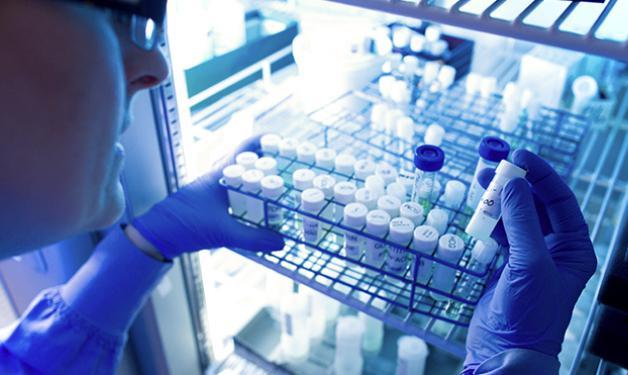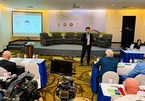According to Prof Roy Perlis, Director of the Excellence Center for Genetic Science of Medical School from Harvard University, the genetic structure related to diseases such as breast cancer, diabetes type II and schizophrenia is complicated and determined by different gene regions.

For example, there are 44 different gene regions involved in depressive disorder but each mutation has only a small effect. The question is how to find all these variations to find suitable diagnoses and treatment methods.
To answer these questions, today, doctors can look up in human gene database, which has been decoded and stored by organizations such as Biobank (UK) and Mycode (USA). By analyzing disease patterns, they can detect pathogenic variants among these data, which helps identify the causes of the disease.
|
Investing and encouraging research on genome and gene sequencing in a systematic way will bring valuable data, thus supporting health care and treatment of diseases, especially cancer and inherited diseases. |
However, the gene banks are not racially diverse. The professors said the information the banks can provide is mostly about Northern European people, so the medical discoveries from the gene banks are beneficial to North Europeans, but they may be not exact for other races.
Currently, the need for genome decoding of other races is high. This is an important trend in both science and commerce.
Sharing the same view, David Strohm from Grey Partners, one of the longest lasting venture funds in the world, said Vietnam in particular and Southeast Asia in general, still has little genetic data, which is attributed to the lower use of modern gene decoding technologies in the region.
Those who want to decode their genetic systems tend to use services overseas, which not only costs them much time and money, but also causes the loss of valuable genetic materials. This means that medical researchers and pharmacy firms will not develop medicine products based on the specific genomes of Vietnamese.
Realizing the problem, some private institutions have decided to spend money on research works on genome sequencing of Vietnamese.
In 2018, Vingroup announced it will spend $4.5 million on a human genome sequencing project on 1,000 Vietnamese citizens. The project will be implemented within five years, commencing from 2019.
Genenica, a startup founded by Cao Anh Tuan, a professor from Cornell University, also provides a gene decoding service with AI technology.
Strohm believes the government needs to launch long-term investment programs to create favorable conditions for businesses and institutes to cooperate and work on the genetic database of Vietnamese.
Thanh Mai

Vietnam promotes genome decoding for better healthcare
The recently held conference Genetica Talk has clearly demonstrated the current international trend of using genetic information to personalize medical treatments, which is quite new in Vietnam.
 Investing and encouraging research on genome and gene sequencing in a systematic way will bring valuable data, thus supporting health care and treatment of diseases, especially cancer and inherited diseases.
Investing and encouraging research on genome and gene sequencing in a systematic way will bring valuable data, thus supporting health care and treatment of diseases, especially cancer and inherited diseases.